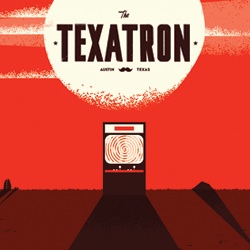RAGDOLL METAPHYSICS: MEMORIES OF 2003, OR WHY WE NEED PLANETSIDE MK2
During a few quiet moments during the battle of blog-reading gentlemen that is our Planetside war, I found myself thinking back to 2003, otherwise known as The Bravest Year of the MMO.
It was the year that I spent the summer in a rented upper bedroom, playing both Planetside and Eve Online ’til dawn each day. Here, at last, were two massively multiplayer games that stretched the model to breaking point. My memories of Everquest awkwardness had been been swept away and replaced with what I assumed were just the first in a succession of brilliant new uses of MMO technology.
Neither game seemed particularly finished or well bug-tested, and they were nevertheless magnificent in their scope and ambition, and in their real-time combat. I began to extol the virtues of their genre-busting nature to anyone who would listen, and I recall a journalist colleague telling me that “both those games will be gone by next year, you mark my words.”
Almost six years later and how wrong he was. The MMO spawn of 2003 have outlived other brave experiments such as Hellgate and Tabula Rasa, and trundled towards the next decade without ever seeming to trouble the cast-iron notion of what an MMO should be. No one has really attempted to ape them, improve on them, or otherwise mess with the model. They have both survived, but nevertheless lived in the shadow of one very successful fantasy MMO.
Of course the fate of these two esoteric games couldn’t have been more different. Planetside has become a small backwater of virtual war in the SOE catalogue, happily ticking over in its own quiet corner of the internet. Meanwhile Eve Online has made headlines and expanded robustly into one of the great stories of MMO development. CCP’s experimental model has created all kinds of exciting emergent situations, and inspiring me to write several long chapters about player-driven gaming in a splendid book.
Eve‘s modular model and wide-open world (see: above) meant that it was able both to evolve steadily in structure and content, while allowing players to express themselves within its space-faring confines. Eve has been given over to a kind of symbiotic development, with players and developers working together in a kind of constructive antagonism to push the game forward, in an expansion every six months, and in player infrastructure every day. This was something that Planetside was unable to do, and despite continued updates, it has not been able to grow.
This lack of genuine growth seems to have come from a lack of insight in how the game might go from the very beginning. It was not, from day one, particularly scaleable, and the development team do not seem to have made good plans for how the game might look a couple of years after release – especially if the server population was to drop, as it did.
Nevertheless I think that Planetside‘s ongoing existence proves much about the bravery and clarity of its initial conception, and going back to it has made me realise just how ahead of its time the design was. This was a huge leap in 2003, and the results are still impressive today. It’s a game that eschews first-person attention-to-the-individual to create a sweeping game that focuses on the wider war.
Only in Planetside do we find persistent battles that might rage of hours, even days, as players cycle through a vast array of combat toys, from robots to armoured buses, from sniper-gear to anti-aircraft exo-skeleton, in a vast brawl for control of beautiful, sterile landscapes. No other game has picked up the idea of science fiction war and said “let’s make it like an actual war”. For this, and the fact that it just about held it together over so many years, Planetside was one of the great games not just of 2003, but of all time.
I do not say that lightly, either, for while its design seems hideously cumbersome and clunky in all kinds of ways, it still has incredible vision. The notion of a large-scale battle, a persistent war, has never been better realised. Seeing a dozen people bail out of a dropship above a raging battle for control of a sci-fi base is astonishingly evocative, and such experiences can be found nowhere else in gaming, not even in the Battlefield games with the wide-open maps and large vehicular catalogue.
Nor have any other games quite picked up Planetside‘s range of communication and strategic tools. High level squad commanders in Planetside are able to place beacons, write on the maps, and call in orbital strikes to assist their faction. Playing Planetside is rapid descent a multi-faceted, organised chaos, and the experience is unique.
This, of course, brings us to another problem with Planetside: that many of these tools are hidden behind a considerable grind for the players. Useful aspects of the game are not immediately available, or even evident, and that’s criminal. Combine this with the terrible base design, the absurd caves that came with the game’s only expansion, Core Combat, and a host of other problems, and you begin to see why Planetside never quite clawed its way to the top of the MMO tree. The hazy win conditions probably didn’t help, either. While various battlegrounds can be “locked” by capturing all the bases, it’s really not a game that provides its factions with many aspirational targets, therefore failing to capitalise on what so many people pay an MMOs subscription for.
It’s clear, then, that SOE, or some other company who can see the wisdom in having a smallish MMO ticking over for many years, must bring us a worthy sequel to Planetside. And they must do it by learning from modern FPS’ user experience, by looking at Eve‘s smart modularity and open PvP, by seeing how games like WoW have carefully provided new personal targets for players across the months.
Seriously folks, rip off what was best about this survivor of 2003, and expunge what failed. Take this proven model and rebuild it for next decade. Planetside‘s minimalist beauty proves that you don’t even need to have the game running on particularly high spec PCs to entice thousands of people to play. Hell, the lower spec the better: the easier it will be to run for everyone.
Perhaps we might just get lucky. Sony at least are looking at the concept of massive warfare again, with their MAG project. Only 256 players, and on a console, but it’s a start. If nothing else, this could provoke their rivals into looking forward and seeing what the future could, and should hold. A Halo MMOFPS, anyone?
[Jim Rossignol is an editor at RockPaperShotgun.com and the author of This Gaming Life, an account of the life of modern videogames and some of the people who play them. Ragdoll Metaphysics is his Offworld column exploring and analyzing gaming’s vast world of esoterica.]
Previously:
Ragdoll Metaphysics: Soap Opera & The Sims – Offworld
Ragdoll Metaphysics: 2008 And The Indie Renaissance – Offworld
Ragdoll Metaphysics: Ten Things That Made Me Glad To Be A Gamer In …
Ragdoll Metaphysics: Left 4 Dead, The Thinking Man’s Braindead Shooter – Offworld
See more posts about: Offworld Originals, Ragdoll Metaphysics






